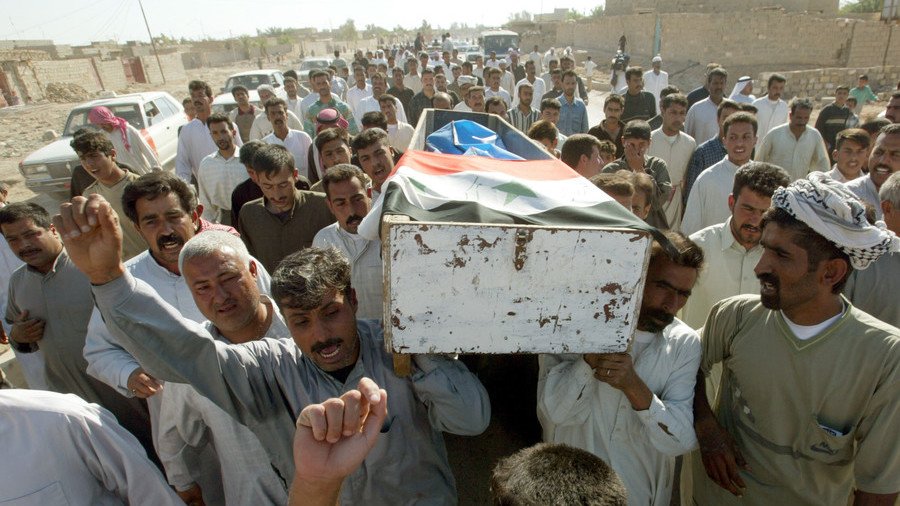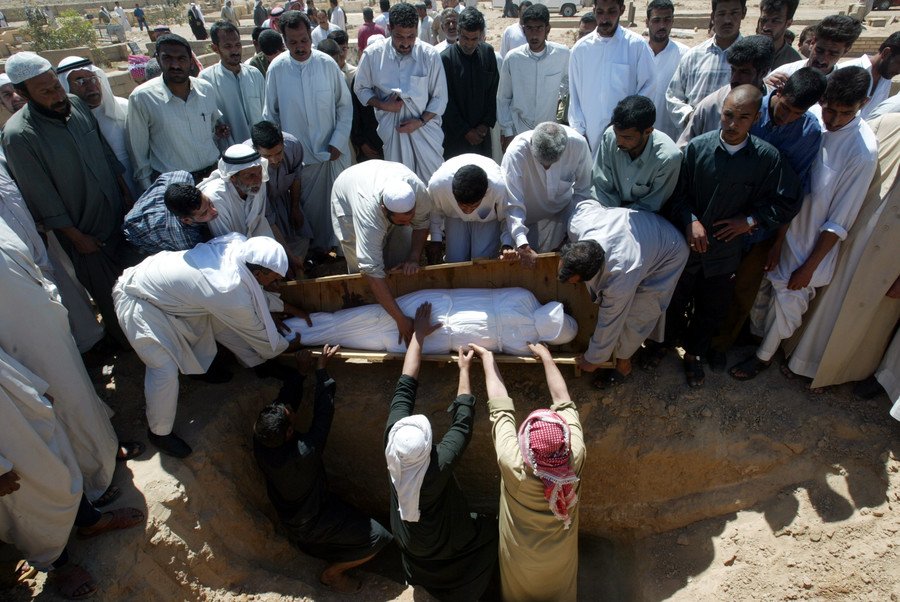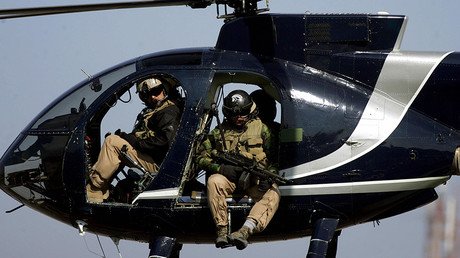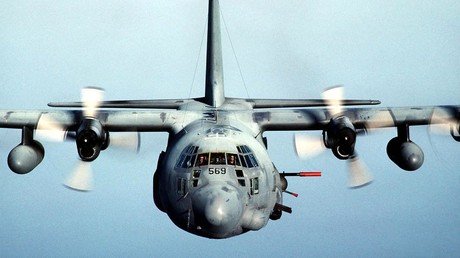Igniting Fallujah: US killings of protesters in 2003 that signaled start of insurgency

Exactly 15 years ago US occupation troops stationed in Fallujah opened fire on a crowd of protesters, arguably marking the start of the unending insurgency and ever-perpetrating violence in Iraq.
The name Fallujah is mostly associated with two bloody battles fought for it by the US-led coalition in 2004 for the US public. Some may recall how the first battle was in response to an ambush of a convoy, in which US contractors from the private military company Blackwater were killed, their bodies desecrated and hanged from a bridge over the river Euphrates. Younger generations may recall that Fallujah was in the hands of the terrorist group Islamic State (IS, formerly ISIS) until yet another siege in 2006 forced them out.
Rewind to April 2003. George W Bush has already given his “mission accomplished” speech, the US-led coalition is busy giving the press updates on the number of captured former Saddam Hussein officials. Fallujah, a conservative and predominantly Sunni Muslim city some 50 kilometers west of Baghdad, sees an influx of American troops, who take over former government buildings and establish bases of operation.
The residents are naturally unhappy with the presence of armed foreigners. The US soldiers, rumors say, use their night goggles to spy on women, compromising their honor. They have dirty pictures and have been showing them to children.
Amid the tensions comes April 28, the birthday of the ousted Iraqi leader, who many residents of Fallujah still supported. Some celebrated the date – including by shooting in the air. Some simply went to evening prayers. In the evening, around 200 people gathered to protest the presence of US troops, first near the HQ of one of the units in the Nazzal neighborhood and later in front of the Al Qaed school, where the Americans set their camp a couple nights ago.
What happened next was later told differently by the sides. The Americans said the crowd had been infiltrated by instigators, who opened direct fire at US troops, and that the soldiers returned fire against those armed men. The Iraqis said the Americans started shooting first. Human Rights Watch believes the US troops were not equipped or trained to handle the situation in the first place, being regular combat soldiers.

On that night, the Americans killed 17 people and injured over 70. Less than 48 hours later, a crowd of 1,000 people marched down Fallujah’s main street, reaching the battalion headquarters and pelted the building and troops with shoes and stones. The Americans opened fire again, killing one man and injuring 15 others.
Years later, journalist Bobby Ghosh, who was covering Iraq for Time magazine, visited Fallujah. The April 2003 killings were fresh and vivid for the Iraqis. “For years afterward, militants I met cited ‘what the Americans did at the Fallujah school’ as the reason they joined the insurgency,” Ghosh wrote.
Fifteen years from the start of the Iraq invasion, the cost in human life continues to mount. The killings in Fallujah were not even the first incident of this kind, but they are remembered as the first step in a long and bloody path that Iraq still walks today.
Like this story? Share it with a friend!















